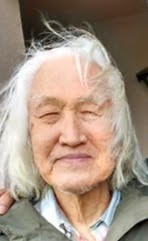- Lecturer: Professor Donna Erickson (Sophia Soliphic, Haskins Laboratories)
- Date: 1:30-5:00pm, Saturday, October 14th, 2017
- Venue: Keio University, Hiyoshi Campus, Eighth Building, Room 812
http://lsdcom.keio.ac.jp/access/index.html
- Host: Phonetic Society of Japan (Phonetics Promotion Committee, Planning Committee)
- Co-host: Keio University, Center for Life-Span Development of Communication Skills (MEXT-Supported Program for the Strategic Research Foundation at Private Universities)
- Organizer: Yasuyo Minagawa (Keio University)
- Admission: Free for members and students, 1000yen for non-members, 500yen for non-member students
- Capacity: 80
Registration: Please fill in the following form. On-site registration is also possible.
https://goo.gl/forms/znFjCUKkxGbiDvBB2
In this seminar, you will learn the basic acoustic, physiological, and perceptual features of emotional speech, as well as emotional speech in acting, cultural and individual differences, and various research methods concerning emptional speech.You are able to learn how to express emotions via voice in different cultures, performances and situations, so we welcome not only researchers but also language teachers, voice-over actors, actors, and singers. (The lecture will be held in English, but Q&A in Japanese is possible.)
Program (tentative)
- Session 1: 13:30-14:30
1. Why study emotional speech?
2. What are some acoustic and articulatory changes?
3. Brief tutorial of F0, loudness and voice quality.
4. Why does experiencing emotion result in changes in the voice?
- 10 min rest
- Session 2: 14:40-15:30
5. Some phonetic/perceptual similarities/differences for spontaneous & acted emotions
6. Acted emotions & cultural differences in perception
7. Social “emotions”: Social affective expressions
8. Social affective expressions: Cultural similarities and differences
- 10 min rest
- Session 3: 15:40-16:30
9. Social affective expressions and personalities
10. Some tips on how to study “emotional” speech
11. Other topics: gender issues, social laugher/spontaneous laughter, etc.
12. Analysis of voice quality
- 10 min rest
- Session 4: 16:40-17:00 questions & free discussion
Contact: Chair, Phonetics Promotion Committee


